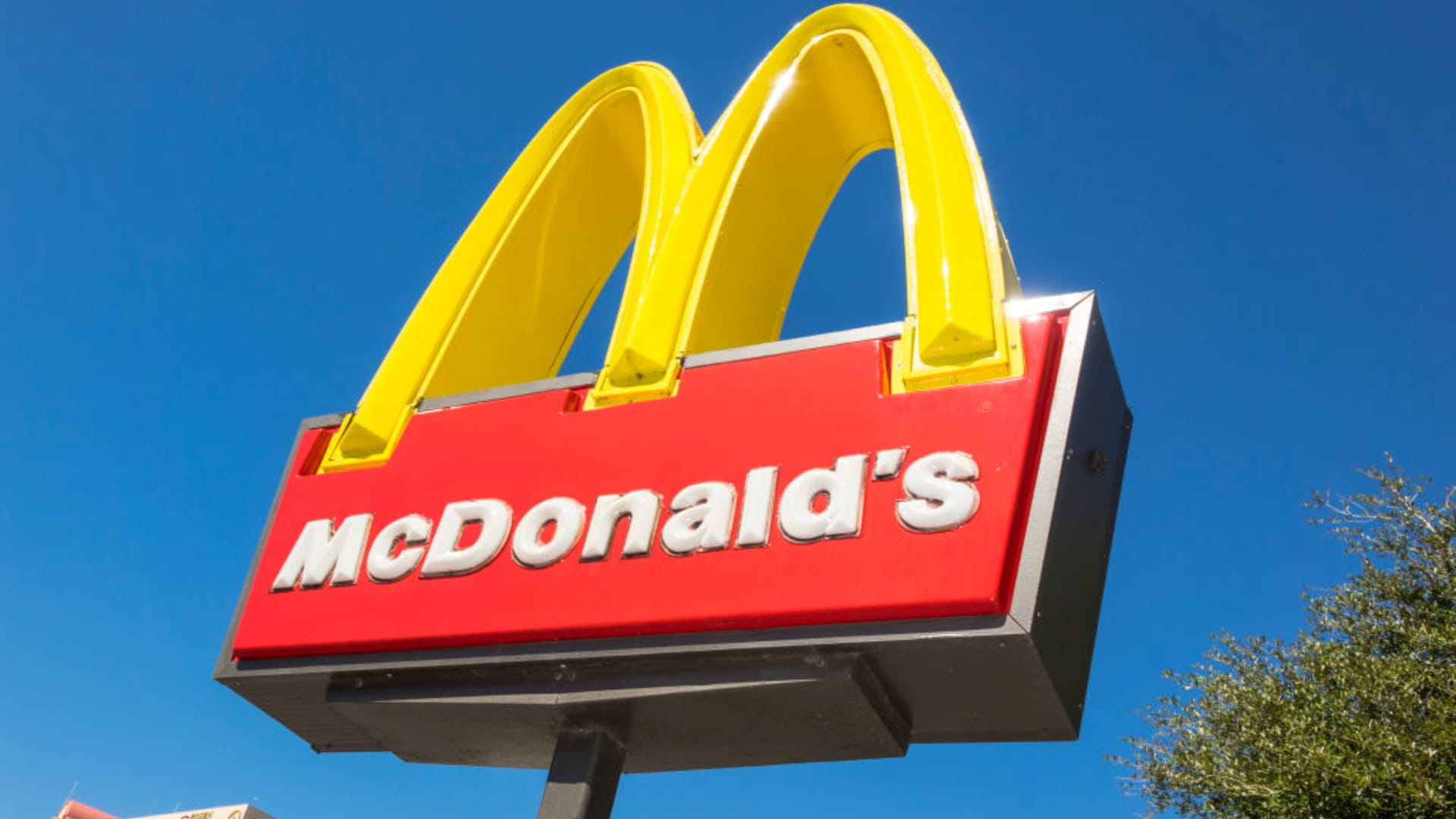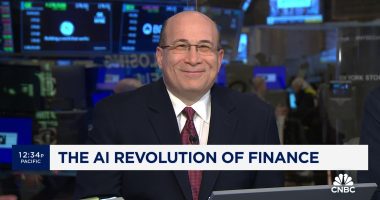
Jeff Greenberg | Universal Images Group | Getty Images
McDonald’s signed a deal to purchase all 225 of the restaurants that comprise its Israel franchise, the American fast-food chain announced, following months of dramatically lower sales due to pro-Palestinian boycott action amid the Israel-Hamas war.
The restaurant outlets in Israel have been owned by local licensee Alonyal Ltd., which is owned by Israeli businessman Omri Padan, for more than 30 years.
“An agreement to sell Alonyal to McDonald’s Corporation has been signed,” the McDonald’s statement said Thursday. “Upon completion of the transaction, McDonald’s Corporation will own Alonyal Limited’s restaurants and operations, and employees will be retained on equivalent terms.” The company did not disclose the purchase amount.
McDonald’s reported its first revenue miss in nearly four years in February, hit by weak sales growth in its division that includes the Middle East.
Consumers around the world but particularly in Arab and Muslim-majority countries have boycotted the brand over what they perceive to be its support for Israel — which the chain’s management denies — following the move by Israel’s franchise branch to provide free McDonald’s meals to Israeli soldiers after the Hamas-led terror attacks of Oct. 7 that killed roughly 1,200 people in Israel and took a further 253 hostage.
The Israel-Hamas war has now killed at least 33,000 people in the blockaded Gaza Strip, according to the enclave’s Health Ministry, and the conflict has triggered what the U.N. and World Health Organization warn is impending famine for more than half a million people.
In January, McDonald’s CEO Chris Kempczinski described a “meaningful business impact” in the chain’s Middle East market and some countries beyond the region, like Muslim-majority Malaysia and Indonesia, as a result of the war and what he called “associated misinformation” about the company.
“We are dismayed by the disinformation and inaccurate reports regarding our position in response to the conflict in the Middle East,” McDonald’s Corp. said in a November statement.
“McDonald’s Corporation is not funding or supporting any governments involved in this conflict, and any actions from our local Developmental Licensee business partners were made independently without McDonalds’ content or approval.”
I’m sure that local Arab McDonalds franchisees are breathing a big sigh of relief today.
Monica Marks
Professor of Middle East Politics, NYU Abu Dhabi
McDonald’s wrote in a regulatory filing in February that it “is monitoring the evolving situation, which it expects to continue to have a negative impact on Systemwide sales and revenue as long as the war continues.”
The burger giant’s franchises in several Muslim countries including Saudi Arabia, Turkey, Oman, the United Arab Emirates, Kuwait and Jordan published statements attempting to disassociate themselves from the Israeli franchise while also pledging funds and aid to Gaza.
It didn’t do much to help, however; according to two sources with knowledge of the matter, sales for McDonald’s franchises in several Arab countries plunged between 50% and 90% month on month following the boycott.
Pro-Palestinian activists and supporters wave flags and hold placards along with a Guy Fawkes mask as they walk past a McDonald’s during a protest in central London on March 30, 2024, calling for a ceasefire in the Israel/Hamas conflict.
Benjamin Cremel | Afp | Getty Images
In Lebanon, protesters attacked and vandalized local McDonald’s restaurants, and crowds of pro-Palestinian protesters in London surrounded some of the chain’s branches shouting “shame on you.”
“In regard to the news that McDonald’s in Israel was donating meals. We affirm that it was an individual decision on their part,” Saudi Arabia’s McDonald’s franchise said in a statement in October. “Neither global McDonald’s nor us nor any other country had a role or relationship with that decision, neither directly nor indirectly.”
The company’s stock price is down 10% year to date and has fallen 5.5% from this time last year.
‘More control over its brand’
The purchase by McDonald’s will “give it more control over its brand, after losses linked to actions of its Israeli franchisee,” Monica Marks, a professor of Middle East politics at NYU Abu Dhabi, wrote in a post on X.
She suggested the McDonald’s story could influence brand-franchisee relationships going forward.
“One lesson I expect McDonalds & other global brands will learn from Israel-Palestine boycotts & controversies is that they may look to exert greater control over local franchisees’ actions which could be construed as politicised lightning rods in initial franchising contracts.”
Smoke billows after Israeli bombardment in central Gaza City on March 18, 2024, amid the ongoing battles between Israel and the militant group Hamas.
– | Afp | Getty Images
In the six months since the Oct. 7 attacks and Israel’s offensive in Gaza, many McDonald’s venues around the Arab world that typically saw robust customer flows have sat largely empty. In Dubai, restaurants that previously drew long drive-through lines and crowds of delivery drivers late into the night instead saw empty parking lots.
“I’m sure that local Arab McDonalds franchisees are breathing a big sigh of relief today,” Marks said. “Their businesses, which had no connection to Alonyal’s decision to give free meals to the IDF in October, have been massively hit here in the MENA region by boycotts.”
The McDonald’s boycott initiative sparked further boycotts of major Western brands including Starbucks, which also saw a major downturn in revenue from the Middle East after the Seattle-based coffee chain sued the Workers United union over a pro-Palestinian message it posted online. In a statement on its website, Starbucks called suggestions that it supported the Israeli government in any way “unequivocally false.”
The statement apparently fell on deaf ears. Starbucks’ franchise operator in the Middle East and North Africa, Alshaya Group, announced in early March that it would lay off 2,000 workers across its regional shops — roughly 10% of its workforce — due to “continually challenging trading conditions” created by the boycotts.
Read More: World News | Entertainment News | Celeb News
CNBC










